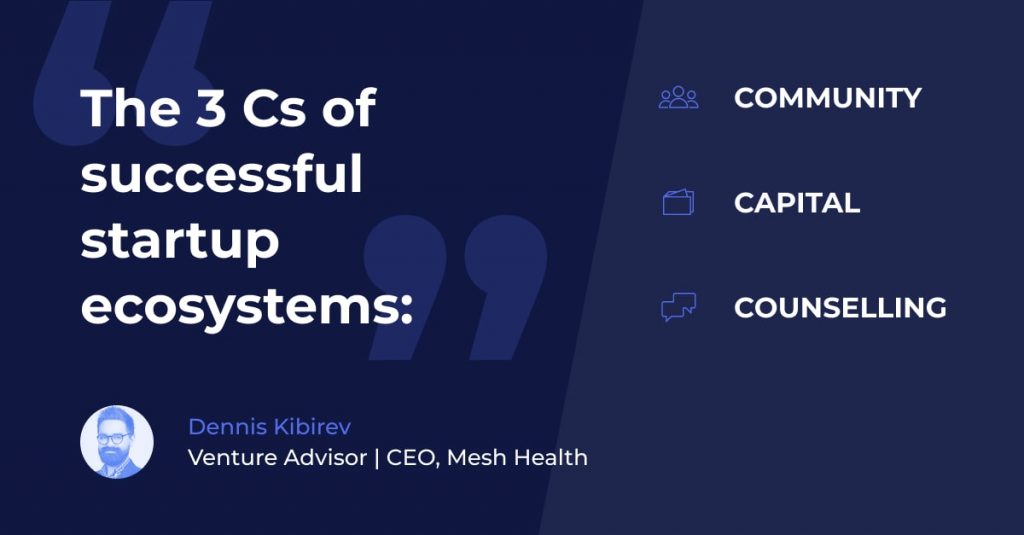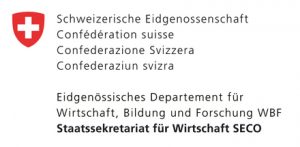As a mentor for startups internationally, which includes engaging with founders on a weekly basis from opposite ends of the globe, it was very interesting to compare and contrast how things work ‘under the hood’ in two very different regions of the world – in Vietnam and in the Balkans, or to be more specific in Albania, Kosovo and North Macedonia. Being physically on the ground and working with the local startup communities in a very hands-on way definitely afforded a more in-depth analysis and assessment of each ecosystem.
While each country had its own strategy for building an innovation economy, there are some common elements I’ve observed that could strengthen each ecosystem I experienced. I’ll call these the ‘3 Cs’:

[Community]
In order to build a robust startup ecosystem, it is necessary to have the active involvement of many players at different levels. This includes the startups themselves, investors, as well as educational and government institutions. No one type of stakeholder can create a robust community on their own, it takes all of these individuals in order to implement something sustainable.
This has been well-documented in Brad Feld’s series of books on the topic. And while Feld’s books take more of a US lense to all of this, it was interesting to personally observe the applicability of the framework to emerging ecosystems. The theory definitely seems to define some universal truths, with Vietnam and North Macedonia being good case studies for the viability of such a multi-angled approach.
[Capital]
While all the above-mentioned stakeholders are important, the one stakeholder type that has a disproportionate influence on the rapid growth of a large pool of startups concurrently is investors. Vietnam has seen a number of VC funds emerge over the last couple of years, bolstered by the general attention South East Asia is drawing from institutional investors, yet the levels of capital deployment still cannot compare to those of the USA or mainland Europe, or even certain other parts of Asia.
For Balkans founders, lack of institutional capital and experienced venture investors is even more of a limiting factor as the region is still off the radar for the majority of VC funds, angel groups and corporations. I do think each respective government needs to play a more hands-on role in terms of encouraging venture capital deployment. This can be done via creating government ‘funds of funds’ – similar to what can be seen in the European Union – and also enhancing the tax environment in order to make it more welcoming for different classes of investors.
From a local founder standpoint though, it’s important to recognise this limitation and leverage the realities of the current global funding environment. Investors everywhere are now more open to hearing from high-potential startups, regardless of their country of origin. It is the startup CEO’s job to identify the investment avenues most appropriate to their startup and turn this into an actionable international capital raising strategy. The volume of venture capital being deployed everywhere is historically at an all-time high so it’s definitely a seller’s market.
[Counselling]
I don’t mean this in terms of psychological support – although every founder certainly could use help on that front also. Here I’m referring to the availability of mentoring and coaching from those who have already ‘been there and done that’ in terms of building and exiting startups. Such support from fellow entrepreneurs accelerates the learning curve of the entire ecosystem and allows for faster scaling of new products and businesses. When you have a local example of someone who’s made it, this is always more encouraging for someone just starting out as it feels more tangible and real.
But it’s also important to get exposure to founders who have operated at a global level, which is where the Swiss Entrepreneurship Program comes in. SwissEP’s mission is very commendable because it connects local founders with those who have already scaled businesses to a certain level. The opportunity to engage with such operators is something founders in Vietnam and the Balkans need to take more advantage of. Those who make the effort to turn up and challenge their thinking through such interactions will most likely be the future local success stories.
About Dennis: Dennis Kibirev started his first business at the age of 23 while working for Unilever. The experience of running that side hustle, while short-lived, got him hooked on entrepreneurship and he has since been involved in building and growing startups internationally. This includes formulating and implementing growth strategies for over 15 years as both a founder and startup executive, across Asia Pacific, Europe and North America.




